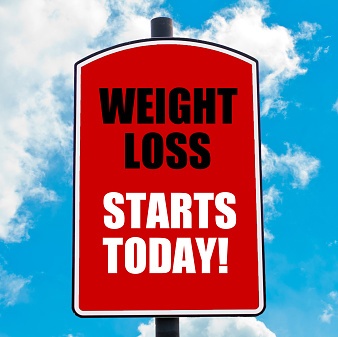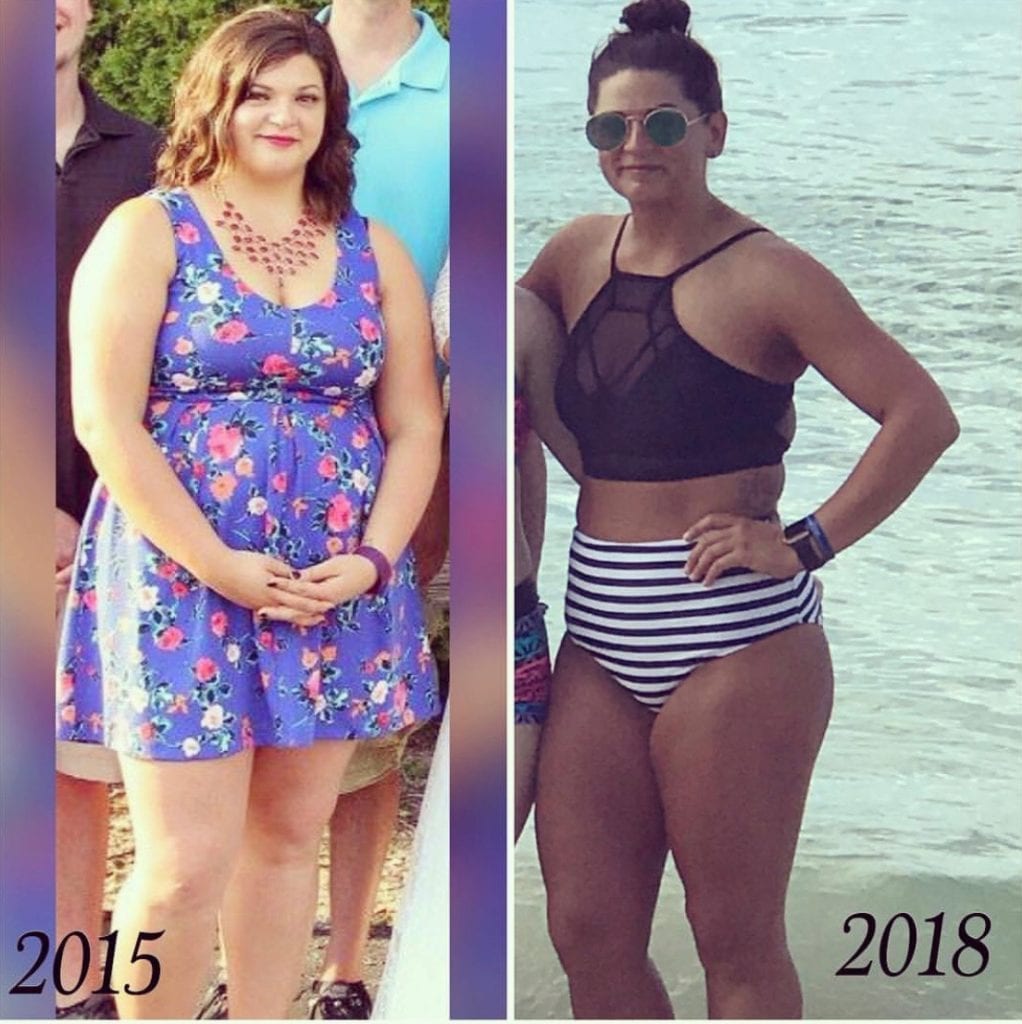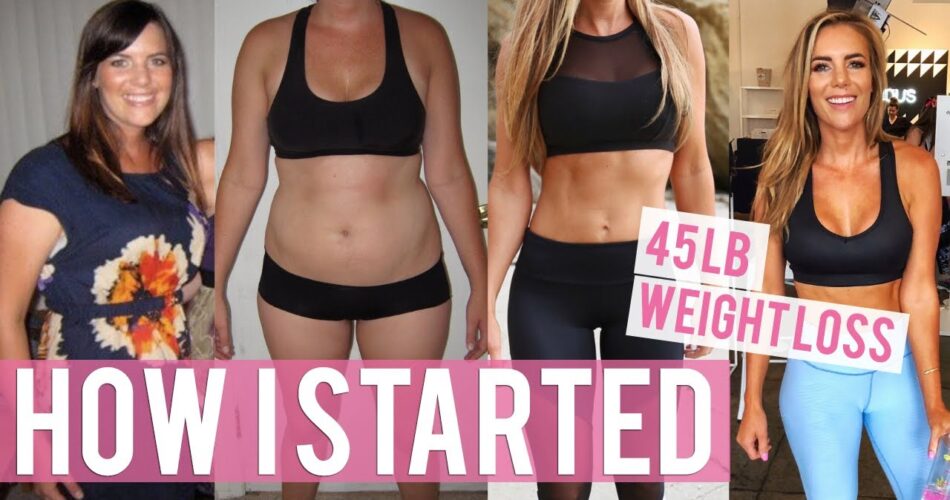To begin your weight loss journey, set realistic goals and create a balanced diet plan. Incorporate regular exercise into your routine.
Starting a weight loss journey can be challenging but achievable with the right approach. Set specific, attainable goals to keep yourself motivated. A balanced diet plan is crucial for effective weight loss. Focus on incorporating whole foods, lean proteins, and vegetables.
Regular physical activity, such as walking or cycling, will help burn calories and improve overall health. Monitor your progress and adjust your plan as needed. Seek support from friends, family, or a professional to stay on track. Remember, consistency and dedication are key to long-term success. By taking these steps, you can embark on a successful weight loss journey and achieve your health goals.
Embarking On A Weight Loss Journey
Starting a weight loss journey can feel overwhelming. The first step is the hardest. But, with a clear plan, you can succeed. This guide will help you set goals and assess your lifestyle. These steps are essential for a successful journey.
Setting Realistic Goals
Realistic goals are vital for weight loss success. Unrealistic goals lead to frustration. Focus on small, achievable targets. For example, aim to lose 1-2 pounds per week. This is a safe and attainable goal. It helps you stay motivated and focused.
Use the SMART goal-setting method:
- Specific – Define clear, specific goals.
- Measurable – Track your progress easily.
- Achievable – Set goals within your reach.
- Relevant – Ensure your goals align with your lifestyle.
- Time-bound – Set a deadline for your goals.
Assessing Your Current Lifestyle
Understanding your current lifestyle is crucial. Identify habits that hinder weight loss. This might include poor eating habits or lack of exercise. Make a list of your daily activities and food intake. Then, find areas for improvement.
| Current Habit | Improvement |
|---|---|
| Skipping Breakfast | Eat a healthy breakfast daily |
| Sedentary Lifestyle | Add 30 minutes of exercise |
| Late Night Snacking | Opt for healthy snacks or avoid |
Track your progress to make adjustments. Keep a journal or use an app. Reflect on your achievements and setbacks. This helps you stay on track and motivated.

Credit: www.nifs.org
The Role Of Nutrition In Weight Loss
Embarking on a weight loss journey can be daunting. Nutrition plays a vital role in this process. A balanced diet helps you achieve your weight loss goals. This section explores key aspects of nutrition. We will cover macronutrients, whole foods, and diet balance.
Understanding Macronutrients
Macronutrients are nutrients your body needs in large amounts. They include proteins, carbohydrates, and fats. Each macronutrient plays a unique role in your body:
- Proteins: Build and repair tissues. Found in meat, beans, and nuts.
- Carbohydrates: Provide energy. Found in fruits, vegetables, and grains.
- Fats: Support cell growth. Found in oils, avocados, and cheese.
Balancing these macronutrients is crucial. It ensures your body functions optimally. Use the table below for a quick reference:
| Macronutrient | Primary Function | Common Sources |
|---|---|---|
| Proteins | Build and repair tissues | Meat, beans, nuts |
| Carbohydrates | Provide energy | Fruits, vegetables, grains |
| Fats | Support cell growth | Oils, avocados, cheese |
Incorporating Whole Foods
Whole foods are natural and unprocessed. They are rich in essential nutrients. Examples include fruits, vegetables, and whole grains. These foods support your weight loss journey by:
- Providing essential vitamins and minerals
- Offering high fiber content for satiety
- Containing antioxidants that fight inflammation
Consider these whole food swaps:
- Swap white bread for whole grain bread.
- Choose brown rice over white rice.
- Opt for fresh fruits instead of sugary snacks.
Balancing Your Diet
A balanced diet is key to weight loss. It includes proper portions of all food groups. Follow these simple tips for balance:
- Portion Control: Use smaller plates to manage portions.
- Variety: Eat a variety of foods to get all nutrients.
- Hydration: Drink plenty of water throughout the day.
Plan your meals ahead. This helps you make healthier choices. Remember, consistency is crucial for success.
Importance Of Hydration
Starting your weight loss journey involves many steps. One essential step is staying hydrated. Drinking enough water can help your body in many ways. It boosts your metabolism and helps with digestion. Hydration is key to a healthy lifestyle.
Water’s Impact On Metabolism
Water plays a crucial role in boosting metabolism. When you drink water, your body works to process it. This process helps burn more calories. Drinking cold water can be even more effective. Your body uses energy to warm it up to body temperature. This leads to more calories burned.
Water also helps in breaking down fat. This makes it easier for your body to use it as energy. Staying hydrated ensures you are burning calories efficiently. This can speed up your weight loss process.
How Much Water Do You Need?
Knowing how much water to drink is important. A general rule is to drink at least 8 cups of water a day. This equals about 2 liters. But this amount can vary. Factors like your body weight, activity level, and climate can change your needs.
Here’s a simple way to calculate your water needs:
| Body Weight (lbs) | Water Intake (oz) |
|---|---|
| 100 | 50 |
| 150 | 75 |
| 200 | 100 |
Divide your weight in half. This gives you the amount of water in ounces you should drink. For example, if you weigh 150 pounds, you should drink 75 ounces of water daily.
- Drink a glass of water before each meal.
- Carry a water bottle everywhere.
- Set reminders to drink water throughout the day.
Staying hydrated is simple but powerful. It supports your overall health and weight loss goals.

Credit: burnbootcamp.com
Creating An Exercise Regimen
Starting your weight loss journey can be exciting. An exercise regimen is key. It helps you burn calories and improves overall health. Let’s explore how to create an effective exercise regimen.
Choosing The Right Type Of Exercise
Selecting the right exercises is crucial. Different exercises target different areas. Here are some options:
- Cardio: Running, cycling, and swimming burn lots of calories.
- Strength Training: Lifting weights builds muscle and boosts metabolism.
- Flexibility: Yoga and stretching improve your range of motion.
Mixing these exercises can yield the best results. Each type offers unique benefits. Choose activities you enjoy to stay motivated.
Setting An Exercise Schedule
Having a schedule keeps you on track. Consistency is key in weight loss. Here’s a sample weekly plan:
| Day | Activity | Duration |
|---|---|---|
| Monday | Cardio | 30 minutes |
| Tuesday | Strength Training | 45 minutes |
| Wednesday | Yoga | 30 minutes |
| Thursday | Cardio | 30 minutes |
| Friday | Strength Training | 45 minutes |
| Saturday | Flexibility | 30 minutes |
| Sunday | Rest Day | – |
Start with a simple plan. Gradually increase intensity and duration. Listen to your body to avoid injury.
Monitoring Progress Without The Scale
Starting a weight loss journey involves more than just stepping on a scale. While scales offer a quick glimpse of progress, they don’t tell the whole story. Focusing on other ways to monitor progress can be more motivating and insightful. Let’s explore how to track your journey without relying solely on the scale.
Tracking Measurements And Fitness Levels
Tracking measurements helps in understanding changes in your body composition. Use a tape measure to track key areas such as:
- Waist
- Hips
- Thighs
- Arms
- Chest
Record these measurements every two weeks. This helps you see trends and progress.
Fitness levels are another important aspect. Monitor improvements in endurance, strength, and flexibility. Keep a log of:
- Distance run or walked
- Weights lifted
- Number of repetitions
- Time spent on exercises
Tracking these metrics can show improvements that the scale might not reflect.
Non-scale Victories
Non-scale victories (NSVs) are achievements that aren’t related to your weight. They can be a powerful motivator. Examples of NSVs include:
- Clothes fitting better
- Feeling more energetic
- Improved mood and mental health
- Better sleep quality
- Increased confidence
Celebrate these victories regularly. They reinforce the positive changes you’re making.
| Measurement Area | Start Date | 2 Weeks | 4 Weeks |
|---|---|---|---|
| Waist | 30 inches | 29.5 inches | 29 inches |
| Hips | 40 inches | 39.5 inches | 39 inches |
Regularly updating this table can help you visualize your progress. It provides a clear picture of your journey beyond the numbers on the scale.

Credit: mangoclinic.com
The Psychological Aspect Of Losing Weight
Embarking on a weight loss journey involves more than diet and exercise. The psychological aspect of losing weight plays a crucial role. Understanding and addressing your mental state can significantly impact your progress. This section delves into key psychological factors that can help you achieve your weight loss goals.
Overcoming Emotional Eating
Emotional eating can derail your weight loss efforts. Many people eat to cope with stress, boredom, or sadness. Identifying the triggers for emotional eating is the first step. Keep a journal to track your emotions and eating habits. This will help you recognize patterns.
Find alternative ways to manage your emotions. Engage in activities that you enjoy, like reading or walking. Consider practicing mindfulness or meditation to stay present and reduce stress. Replacing emotional eating with healthier habits can lead to long-term success.
Building A Support System
A strong support system is vital for your weight loss journey. Surround yourself with people who encourage and motivate you. Share your goals with friends and family. They can provide valuable support and accountability.
Joining a weight loss group or online community can also be beneficial. These groups offer a sense of camaraderie and shared experience. You can exchange tips, share successes, and find inspiration. Consistent support can keep you focused and motivated.
| Emotional Eating Triggers | Healthy Alternatives |
|---|---|
| Stress | Exercise, Yoga, Meditation |
| Boredom | Reading, Hobbies, Outdoor Activities |
| Sadness | Talking to Friends, Journaling, Listening to Music |
- Identify your emotional eating triggers.
- Replace emotional eating with healthier activities.
- Build a support system of friends and family.
- Join weight loss groups for added motivation.
Managing Setbacks And Plateaus
Starting a weight loss journey is an exciting time. You feel motivated and ready to make changes. But setbacks and plateaus are part of the process. They can make you feel frustrated. Let’s explore how to handle them effectively.
Adjusting Your Strategy
Setbacks and plateaus don’t mean failure. They mean it’s time to adjust your strategy. Here are some steps you can take:
- Reevaluate your diet: Are you eating too many calories or not enough nutrients?
- Change your workout routine: Try different exercises to challenge your body.
- Monitor your progress: Keep a journal of your food intake and workouts.
Adapting your plan can reignite your progress. Don’t be afraid to make changes.
Staying Motivated During Tough Times
Staying motivated is key to overcoming setbacks and plateaus. Here are some tips:
- Set small goals: Achieving smaller milestones can boost your confidence.
- Reward yourself: Give yourself a treat for reaching goals.
- Find support: Talk to friends, family, or join a support group.
Remember, progress takes time. Celebrate every success, no matter how small.
Sustaining Your Weight Loss
Sustaining your weight loss can seem challenging. But with the right approach, it is manageable. Focus on building long-lasting, healthy habits. This will help you maintain your new weight. Consistency is key. Let’s explore how to sustain your weight loss journey.
Developing Healthy Habits
Developing healthy habits is crucial. It helps keep the weight off. Start with small changes. Replace sugary drinks with water. Choose whole grains over refined grains. Eat more fruits and vegetables.
- Stay Active: Incorporate exercise into your daily routine.
- Sleep Well: Aim for 7-8 hours of sleep every night.
- Mindful Eating: Pay attention to what you eat and enjoy every bite.
Track your progress. Use a journal or an app. This helps you stay motivated. Celebrate small milestones. Reward yourself with non-food treats.
Planning For Long-term Success
Planning for long-term success is essential. Set realistic goals. Make them specific and measurable. For example, aim to lose one pound per week.
| Goal | Action |
|---|---|
| Lose 1 pound per week | Exercise 30 minutes daily |
| Eat more vegetables | Add one veggie to each meal |
| Stay hydrated | Drink 8 glasses of water daily |
Prepare your meals in advance. This helps you avoid unhealthy choices. Stock your pantry with healthy options. Avoid buying junk food. Find a support system. Join a group or find a buddy. This can keep you accountable.
Remember, setbacks happen. Don’t let them derail you. Get back on track as soon as possible. Stay positive and believe in yourself.
Frequently Asked Questions
How To Kick Start Your Weight Loss Journey?
Start by setting realistic goals. Create a balanced diet plan. Incorporate regular exercise into your routine. Stay hydrated and get enough sleep. Track your progress and stay consistent.
How Can A Beginner Start Losing Weight?
Start by setting realistic goals. Eat balanced meals with more vegetables and lean proteins. Drink plenty of water. Exercise regularly with a mix of cardio and strength training. Track your progress to stay motivated.
How Do I Start The Weight Loss Process?
Begin by setting realistic goals. Create a balanced diet plan. Incorporate regular exercise into your routine. Stay hydrated and get enough sleep. Track your progress for motivation.
What Is The 30/30/30 Rule For Weight Loss?
The 30/30/30 rule for weight loss involves 30 minutes of exercise, 30 grams of fiber, and 30 grams of protein daily. This helps boost metabolism, improve digestion, and maintain muscle mass.
Conclusion
Starting your weight loss journey can be empowering. Focus on small, achievable goals to stay motivated. Remember, consistency and patience are key. Seek support from friends or a community. Celebrate your progress and don’t be too hard on yourself. With determination, you can achieve your weight loss goals and lead a healthier life.


